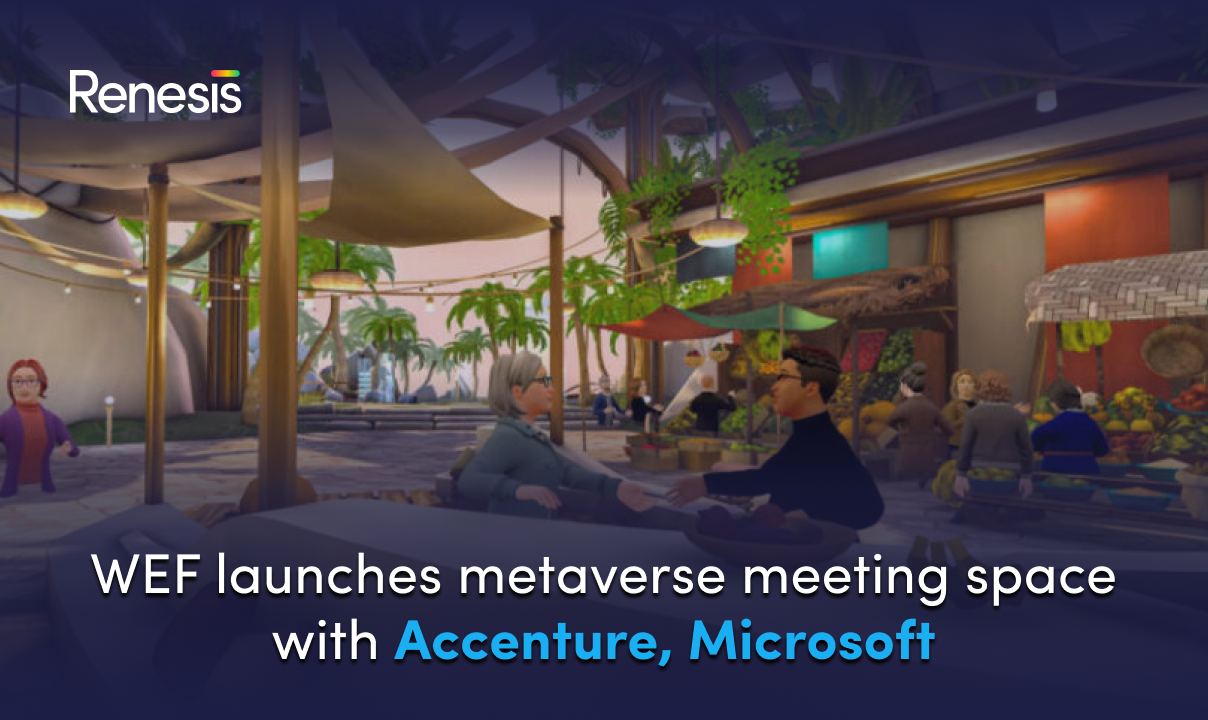WEF Launches Metaverse Meeting Space with Accenture, Microsoft
The World Economic Forum (WEF) has recently announced the launch of a new virtual meeting space called the “metaverse.” Rather than replacing face-to-face interaction, this virtual village will improve global connectivity and collaboration.
WEF debuted its “Global Collaboration Village” prototype at its annual meeting in Davos today. Accenture and Microsoft developed the initiative in partnership to provide organizations with a platform for convening, developing solutions, and taking action on important global issues. It will take place this week in the virtual world.
To address global challenges, the village intends to serve as a purpose-driven metaverse. It allows users to interact with each other in a shared environment, just as they would in the physical world. This technology has the potential to revolutionize how we work, learn, and socialize.
The village was developed by 80 leading organizations. The first-ever interactive sessions were held in the metaverse by participants from all over the world.
Global Village combines XR with a VR
In order to drive global progress, the Global Collaboration Village combines mixed reality (XR) with a virtual reality (VR) platform. Through this virtual village, global connectivity and collaboration will be improved, allowing for better connectivity and collaboration rather than replacing face-to-face interactions.
In his address to the Global Collaboration Village, Klaus Schwab, chairman of the World Economic Forum, said it was a revolutionary initiative that would bring organizations together and collaborate to address pressing global issues.
With the creation of the metaverse, businesses will be able to innovate new consumer products and services, transform their manufacturing operations, and reimagine the way they collaborate and work, bridging the physical and digital worlds.
said Julie Sweet, CEO of Accenture.
The Village was first introduced as a proof of concept at the WEF 2022 conference. This initiative was motivated by the pandemic, which drove the need to connect virtually. Taking the time to reduce travel reduces carbon emissions, which is the expanded rationale. Community engagement in the metaverse is being adopted by several international organizations, including Interpol.
The use of digital technologies during a pandemic is a natural extension for those who have access to technology, but it is not clear whether all would have access to the necessary equipment. In the future, this may lead to a digital divide. While it is still in its infancy, companies are collaborating to find ways to deal with the potential pitfalls of the metaverse.
To set global governance standards for metaverse projects, the WEF, among other organizations, is collaborating with several organizations.










